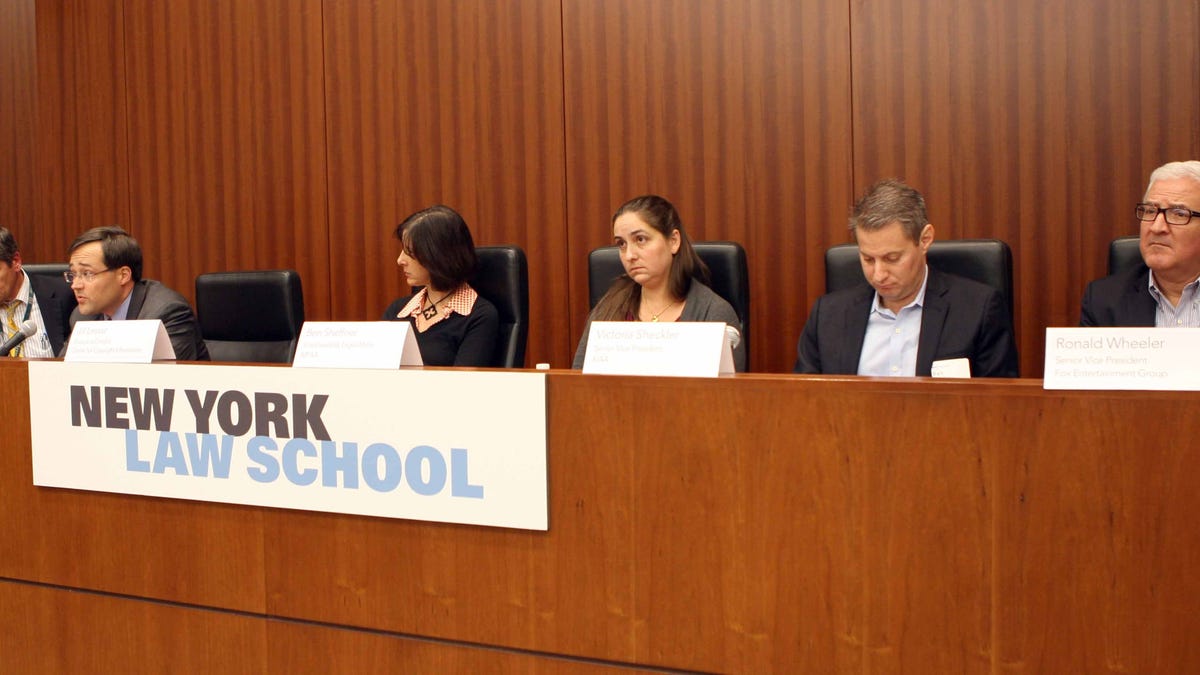Cable companies say they won't disconnect accused pirates
Verizon and Time Warner Cable say they won't pull the plug on customers as a result of piracy complaints from Hollywood movie studios and record labels as part of the "six strikes" program.

NEW YORK CITY -- Verizon and Time Warner Cable said today they won't pull the plug on customers accused of piracy through a forthcoming "six strikes" program.
Link Hoewing, Verizon's vice president, and Fernando Laguarda, Time Warner Cable's vice president, said at a forum organized by the Internet Society that after they repeatedly inform customers that that their activities appear to violate copyright law, the companies' obligation is fulfilled -- and no account termination will take place.
That could reduce some of the privacy and due process concerns about the Center for Copyright Information, a joint venture between Hollywood copyright holders and Internet service providers, which is about to begin operations. AT&T, Cablevision, and Comcast are also members.
But it doesn't mean that offenders will be off the hook. Copyright holders acknowledged that they retain their rights to, if they choose, sue the more serious offenders. That's what the record labels did in the case of Jammie Thomas-Rasset, the Minnesota woman slapped with a $220,000 penalty for copyright infringement.
Ben Sheffner, the Motion Picture Association of America's vice president of legal affairs, told CNET after the event that he doesn't see his organization following the same path. "We have no plans to sue anybody," he said. "We don't. Suing somebody is not part of the system and we have no plans to sue."
Leaked documents from AT&T made public last month say the network provider will begin to send out warning notices on November 28.
Molly Land, assistant professor of law at New York Law School, which hosted today's event, said that there's enough ambiguity in the so-called memorandum of understanding (PDF) between Internet providers and copyright holders to permit disconnection.
"The sanction of termination is disproportionate to the goals of the system," Land said. "If there's a decision not to have termination on the table, can we get that in writing? The possibility is still there."
The memorandum does say that Internet providers may enforce their own policies against copyright infringement, which can include "temporary suspension or termination" of customers' accounts.
Land said that if termination is taken "off the table it helps in a number of ways," including making the entire system "more valid under human rights law" and alleviating due process concerns.
Jill Lesser, executive director of the Center for Copyright Information, asked for the public to reserve judgement on whether the program works or not, saying they should "hold judgement in abeyance until the program is up and running which will be very, very soon."
Full disclosure: I moderated the discussion.

